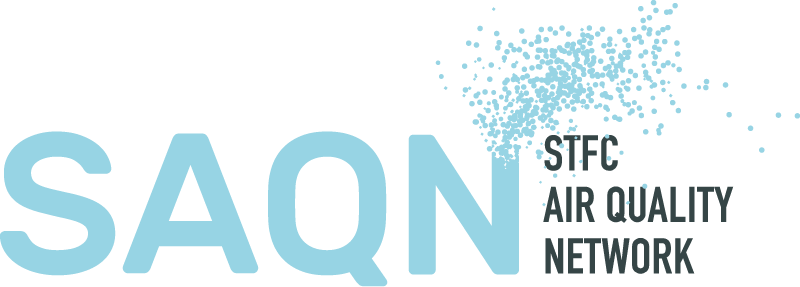SAQN have awarded ten Scoping Studies to new research teams, addressing different air quality challenges. The research ideas were generated and developed through our Collaboration Building Workshops in 2020 and 2021.
With awards of up to £8,000 per project, these are small scale activities to test out an idea, with a view to developing the research further after the initial phase, and potentially exploring commercialisation. All the projects make innovative use of STFC capabilities, either applying new techniques to air quality research, or developing the capacity of STFC laboratories in new ways.
Read about our Scoping Study projects, and click through to find out more.

Modular Relaxed Eddy Covariance sensor for Air Quality – MOREC-AQ
MOREC-AQ uses RAL Space sensor development and miniaturisation to create a prototype instrument, including a cost effective, miniaturised ammonia sensor.

Sources, behaviour and mitigation strategies influencing indoor air quality: A pilot study
The aim of the project is to build up interdisciplinary monitoring and modelling capabilities to inform and influence building design and behaviour change.

On track of NH3: cross-validation of satellite and ground-level measurements
This project evaluates the ability of satellite NH3 concentrations to predict ground-level NH3 concentrations in the UK.

Designing a UAV-ready sensor package for rapid deployment during volcanic crisis
The aim of this project will be to build a prototype sensor package suitable for monitoring concentrations of sulphur dioxide (SO2) and particulate matter in volcanic plumes, to be mounted on an Unoccupied Aerial Vehicle (UAV) platform.

AIREFUNITS
A miniaturized but robust reference/calibration unit for swarms of air quality sensors.

Developing a compact, low-cost DELTA-Mi with flow sensing for low-time resolution measurements of atmospheric gases and aerosols
The project aims to upgrade and miniaturise the UKCEH DELTA® system for future development of sensor networks and optimise power requirements.

Using high-resolution techniques to assess the potential health and climate impacts of biomass burning aerosol
The project aims to identify the potential climate and health impacts of biomass burning aerosol using high-resolution spectrometry and spectrometry and in-vitro analysis.

Impacts of inhaled nanoparticles on the brain – Using nanoparticles to learn the “lung-brain-axis”
This study will help to understand the impacts of environmentally relevant particles on the biological systems beyond the lungs, especially on the brain.

Heterogeneous reactivity of Persistent Organic Pollutants
The overall aim of this project is to scope out how STFC laboratory and modelling facilities can be used to quantify the heterogeneous reactivity of a target Persistent Organic Pollutant.

Emulating the Chemical mechanism through Machine Learning to speed up the real time Air Quality Prediction (ECheMLAQ)
This project uses STFC Machine learning techniques and satellite data to improve chemical transport models.
